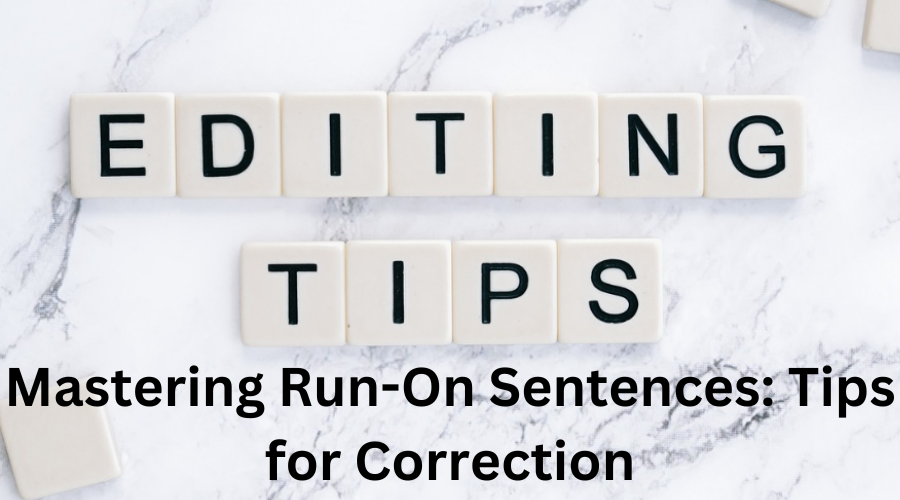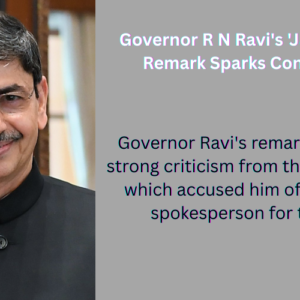A run-on sentence happens when two independent clauses are combined without the proper punctuation or suitable conjunctions.
Incorrect: Sarah enjoys reading mystery novels she often stays up late to finish them.
Correcting the Problem: Sarah enjoys reading mystery novels; she often stays up late to finish them.
A common run-on sentence
Incorrect: He missed the bus he had to walk to school in the rain.
Correct: He missed the bus; consequently, he had to walk to school in the rain.
Numerous methods exist for rectifying a run-on sentence. However, it’s essential to first analyze the sentence’s constituent clauses before determining the appropriate corrective action. After identifying the primary objective of the sentence, opt for one of the subsequent approaches to rephrase it with clarity.
After determining the main purpose of the sentence, one can choose between dividing the clauses into two sentences, inserting a semicolon between them, or using a comma with either a coordinating or subordinating conjunction.
Divide the clauses into two sentences and insert a period between them.
Incorrect: The sun was setting the sky turned a beautiful shade of orange.
Correct: The sun was setting. The sky turned a beautiful shade of orange.
Insert a semicolon between them, if you find that the two clauses are closely associated.
Incorrect: The meeting was postponed it had been scheduled for next week.
Correct: The meeting was postponed; it had been scheduled for next week.
Use a comma and a coordinating conjunction (FANBOYS – for, and, nor, but, or, yet, so) to separate the clauses.
Incorrect: She wanted to go for a run it started raining heavily.
Correct: She wanted to go for a run, but it started raining heavily.
Add a subordinating conjunction (some of them are the following: because, when, while, as, if, although, though, and since) and create one good sentence using two clauses.
While
Incorrect: I’ll make dinner you set the table.
Correct: I’ll make dinner while you set the table.
Because
Incorrect: She was late to the meeting she missed the bus.
Correct: She was late to the meeting because she missed the bus.
When
Incorrect: Call me you get home.
Correct: Call me when you get home.
As
Incorrect: He listened to music he did his homework.
Correct: He listened to music as he did his homework.
If
Incorrect: I will go to the party it doesn’t rain.
Correct: I will go to the party if it doesn’t rain.
Although
Incorrect: She enjoyed the movie she didn’t like the ending.
Correct: She enjoyed the movie although she didn’t like the ending.
Though
Incorrect: He is very busy he always makes time for his friends.
Correct: He is very busy though he always makes time for his friends.
Since
Incorrect: They have been happier they moved to the countryside.
Correct: They have been happier since they moved to the countryside.
News in Same Category
 Transitive and Intransitive Verbs
Transitive and Intransitive Verbs
 Ask Questions Using Would You, Could You, Will You and Can You
Ask Questions Using Would You, Could You, Will You and Can You
 Using ‘mind’ as a verb to instruct someone to be careful or take care of something
Using ‘mind’ as a verb to instruct someone to be careful or take care of something
 The term ‘mind’ to denote the act of taking care of someone or something
The term ‘mind’ to denote the act of taking care of someone or something
 He doesn’t mind, She doesn’t mind, I don’t mind
He doesn’t mind, She doesn’t mind, I don’t mind
 The Phrase “Never Mind”
The Phrase “Never Mind”
 Uses of ‘Mind’ as a Noun
Uses of ‘Mind’ as a Noun
 Uses of ‘Being’
Uses of ‘Being’
 ‘In a Nutshell’: Summarizing Complex Ideas Concisely
‘In a Nutshell’: Summarizing Complex Ideas Concisely
 Difference Between Phrase and Clause
Difference Between Phrase and Clause
 Either… or…
Either… or…
 Rather, Rather than, Rather a lot, Or rather
Rather, Rather than, Rather a lot, Or rather
 What Is the Difference Between ‘Licence’ and ‘License’?
What Is the Difference Between ‘Licence’ and ‘License’?
 Usage of Neither
Usage of Neither
 Here are Essential Steps to Kickstart your Journey as a Professional Copy Editor
Here are Essential Steps to Kickstart your Journey as a Professional Copy Editor
 UGC opens doors for top global universities to establish campuses in India
UGC opens doors for top global universities to establish campuses in India
 JEE Advanced 2024: Key Dates and Enrollment Details Announced
JEE Advanced 2024: Key Dates and Enrollment Details Announced
 IIT Madras Launches Integrated Career Pathway Centre for Student Success
IIT Madras Launches Integrated Career Pathway Centre for Student Success
 IIM Lucknow to Soon Release CAT 2023 Answer Key
IIM Lucknow to Soon Release CAT 2023 Answer Key
 IIM Kashipur Announces Executive MBA Program for 2024, Invites Applications for EMAT-2023
IIM Kashipur Announces Executive MBA Program for 2024, Invites Applications for EMAT-2023















































